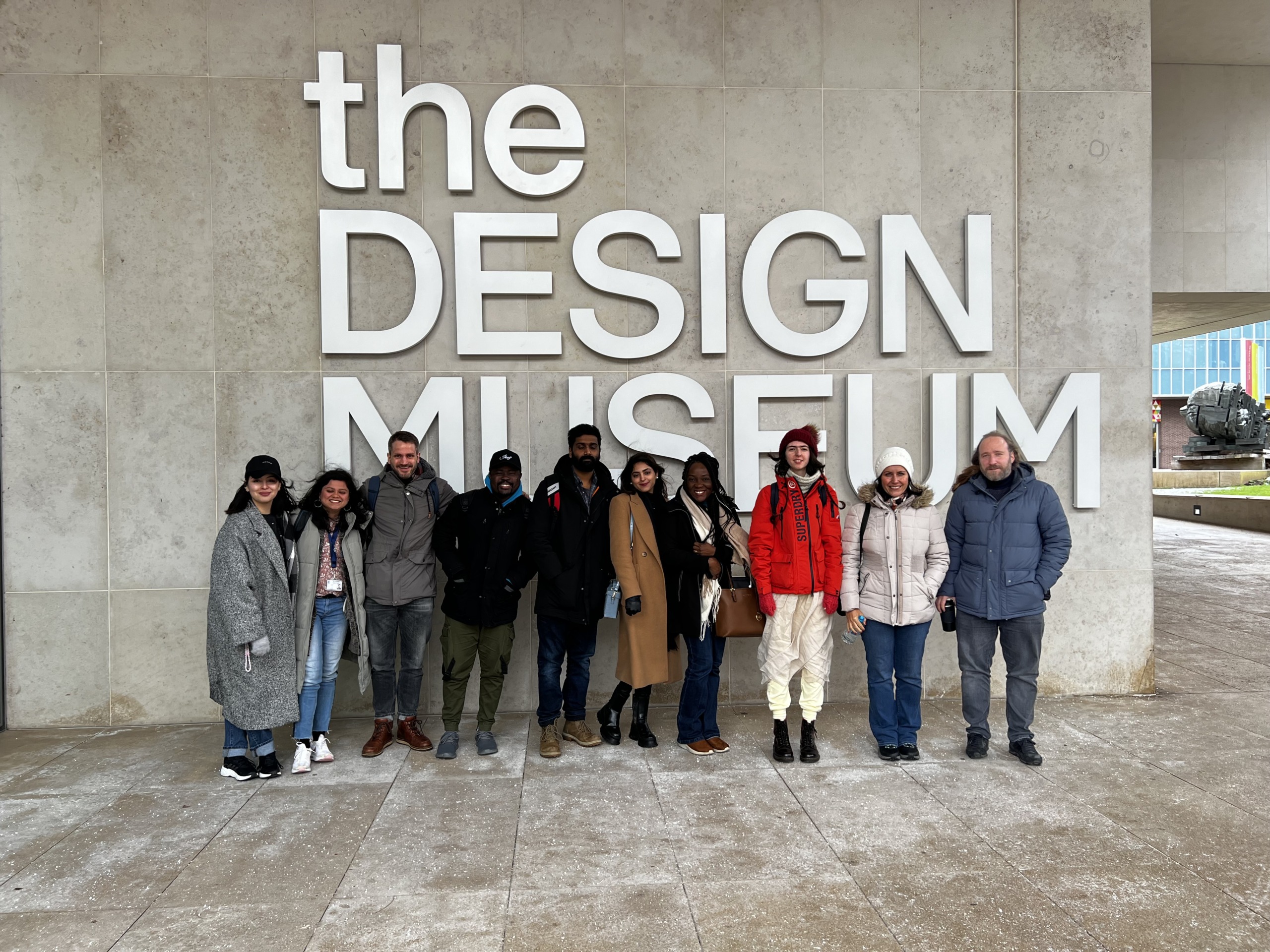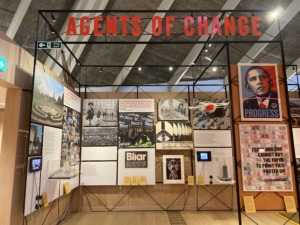Design as a Tool for Change
24/05/2023

Design as a Tool for Change: Exploring Circular Economy and Sustainability through a visit to the Design Museum
Design has become increasingly important in creating sustainable solutions for a better future. At the forefront of this movement is the concept of circular economy, where the focus is on designing products and systems with the aim of eliminating waste and reducing negative environmental impacts.
We had the opportunity as students from MDes Design Thinking from Cranfield University to visit the Design Museum in London, where I gained a deeper understanding of the role of design in promoting circular economy, whole system design, and sustainability.
Upon entering the museum, I was immediately struck by the various exhibitions that showcased the power of design in transforming our world. One such exhibition was the “Designer Maker User” exhibit, which highlighted the interplay between these three roles in creating products that are both functional and aesthetically pleasing. The exhibit featured a range of products, from everyday household items to high-tech gadgets, all designed with the goal of reducing waste and promoting sustainability.
As I moved through the museum, I also encountered several displays that showcased the power of whole system design. The “Internet of Things” exhibit, for instance, explored the role of system designs in connecting physical objects over the internet. Connected devices can amass vast amounts of data that can help us better understand how we use objects and the changes in how we live and work. This exhibit made it clear that whole system design can play a crucial role in addressing the perceived need to redesign development; not simply to harm the environment less, but rather to be truly restorative of nature and ecosystems, and society and communities through connectivity.
Also, the museum’s “Agents of Change” exhibit highlighted the role of design in shaping political campaigns and activism, highlighting the importance of considering the entire system in which a product or service exists. This exhibit made it clear that design can play a crucial role in promoting social and environmental justice, especially when it comes to advocating for systemic change.

Finally, a quick check-in at the “Kyoto Garden” near the museum was refreshing for students to learn about its history. The Koyoto Garden was constructed as part of the Japan Festival 1991 on the centenary of the Japan Society in British. It was built by the Kyoto Chamber of Commerce and Industry with the help of many Gardening Companies in Kyoto and was presented to the Royal Borough of Kensington and Chelsea as a gift to commemorate the long-lasting friendship between Great British and Japan.
Overall, my visit to the Design Museum was an inspiring and eye-opening experience that underscored the power of design in promoting a circular economy, whole system design, and sustainability. As we continue to grapple with the challenges of climate change and environmental degradation, design will play an increasingly important role in shaping our world for the better.
Choose Cranfield University,
Choose Design Thinking.
Categories & Tags:
Leave a comment on this post:
You might also like…
Company codes – CUSIP, SEDOL, ISIN…. What do they mean and how can you use them in our Library resources?
As you use our many finance resources, you will probably notice unique company identifiers which may be codes or symbols. It is worth spending some time getting to know what these are and which resources ...
Supporting careers in defence through specialist education
As a materials engineer by background, I have always been drawn to fields where technical expertise directly shapes real‑world outcomes. Few sectors exemplify this better than defence. Engineering careers in defence sit at the ...
What being a woman in STEM means to me
STEM is both a way of thinking and a practical toolkit. It sharpens reasoning and equips us to turn ideas into solutions with measurable impact. For me, STEM has never been only about acquiring ...
A woman’s experience in environmental science within defence
When I stepped into the gates of the Defence Academy it was the 30th September 2019. I did not know at the time that this would be the beginning of a long journey as ...
Working on your group project? We can help!
When undertaking a group project, typically you'll need to investigate a topic, decide on a methodology for your investigation, gather and collate information and data, share your findings with each other, and then formally report ...
From passion to purpose: My journey at the Pinnacle of Aviation
By: Sultana Yassin Abdi MSc Air Transport Management, Current Student Born and raised in the vibrant landscape of the UAE, with roots stretching back to Somalia, my life has always been ...






